The dengue fever epidemic came quite early this year and is currently at its peak. It is expected that the number of dengue fever patients will increase even more in October and November.
For two consecutive years, we have had a major epidemic in the North as well as Hanoi . Therefore, we need to prepare many treatment and prevention plans to respond in case the epidemic spreads.
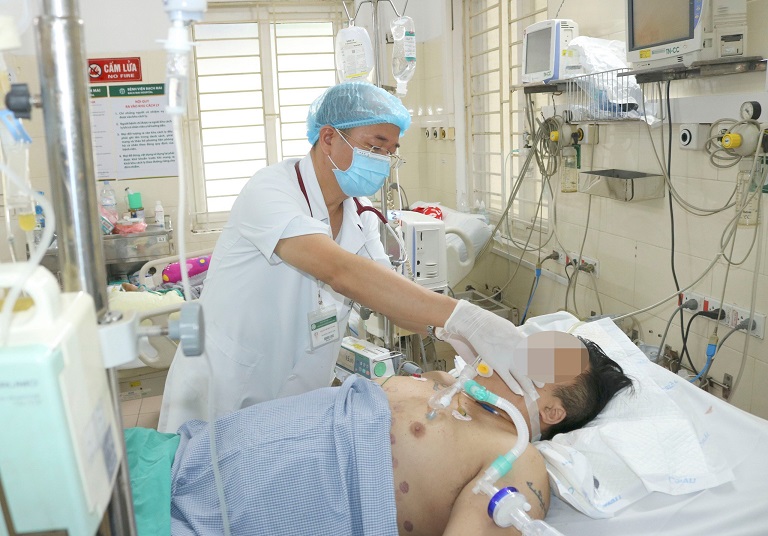
There are serious patients who have to be hospitalized for treatment (photo source Bach Mai Hospital).
Associate Professor, Dr. Do Duy Cuong - Director of the Center for Tropical Diseases, Bach Mai Hospital, commented: Currently, the dengue fever epidemic situation is quite complicated, the number of dengue fever patients being treated at the Center accounts for 1/3 of the total number of patients.
Every day, we receive 30-50 cases of dengue fever for examination, including 15-20 cases of severe dengue fever with warning signs requiring hospitalization.
To date, 6 deaths have been recorded, most of them due to late arrival with symptoms of hypovolemic shock, blood clotting disorders and multiple organ failure. In addition, there are some patients who have to be hospitalized due to special conditions such as pregnant women, those with underlying diseases such as heart disease, lung disease, cancer, dialysis, etc. These are patients who need special monitoring.
According to Associate Professor Cuong, dengue fever is an acute infectious disease caused by the Dengue virus carried by Aedes mosquitoes and transmitted from person to person through mosquito bites. There are 4 serotypes: D1, 2, 3 and 4.
The incubation period is 4 to 5 days. The clinical course goes through 3 stages: From day 1 to day 3 is the fever stage, from day 4 to day 7 is the dangerous stage, from day 7 to day 10 is the recovery stage. There are 2 pathogenesis mechanisms that can lead to danger.
First, when the virus attacks the body, it will inhibit the bone marrow, causing thrombocytopenia, which will lead to bleeding. Second, the virus damages the capillary wall, causing increased permeability, causing plasma to leak out of the blood vessels, resulting in blood concentration, from which the patient can go into shock due to decreased circulating volume. After a period of thrombocytopenia, platelets will increase, but it is very difficult to treat hypovolemic shock due to blood concentration, which is the main cause of death.
Regarding treatment, mild cases or dengue fever in the early days can be treated and monitored at home. It is necessary to drink enough water, take antipyretic - analgesic paracetamol, rest, and have daily blood tests.
Note: Do not self-administer IV fluids and do not use antibiotics or corticosteroids. Special attention should be paid to the fact that from the 4th to 5th day onwards, there will be a phenomenon of blood concentration if not enough fluid is replenished. If the blood formula test shows that the Hematocrite index has increased by more than 20% compared to the beginning, it means that the blood is concentrated. Special attention must be paid to the issue of IV fluids.
In case of infusion is not effective, high molecular solution must be used to draw water into the blood vessels.
Severe cases have warning signs: abdominal pain in the liver area, little urine, nosebleeds, bleeding gums, vomiting or bloody stools, menorrhagia, metrorrhagia in women, blood test results show rapid decrease in platelets or rapid increase in hematocrit.
Associate Professor Cuong advised people: Many people subjectively think that dengue fever is normal, that the fever will go away after a few days, so they stay at home, and only go to the hospital when they see bleeding.
In fact, many cases of fever without bleeding symptoms but with blood concentration leading to shock, at this time treatment is very difficult and even fatal. When there are signs of fever, you need to go to medical facilities for blood tests to confirm the diagnosis and follow up treatment by a specialist, do not self-treat at home.
Currently, the Ministry of Health has just issued Decision 2670/QD-BYT "Guidelines for diagnosis and treatment of Dengue fever". Medical staff, not only in the field of infectious diseases, but also in other specialties such as internal medicine, emergency resuscitation, pediatrics, etc., must update according to this new guideline.
Medical facilities need to be prepared with adequate facilities, medicines, infusion fluids, and blood products, etc. to be ready to receive and treat seriously ill patients, minimizing the mortality rate.
Source




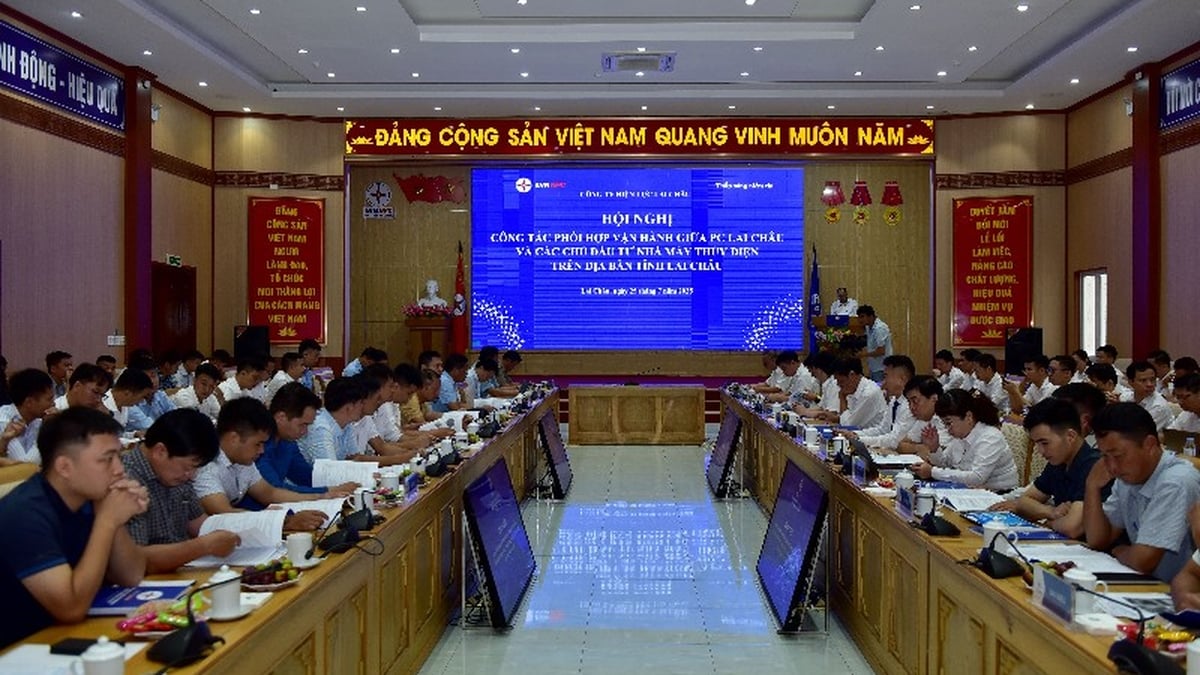
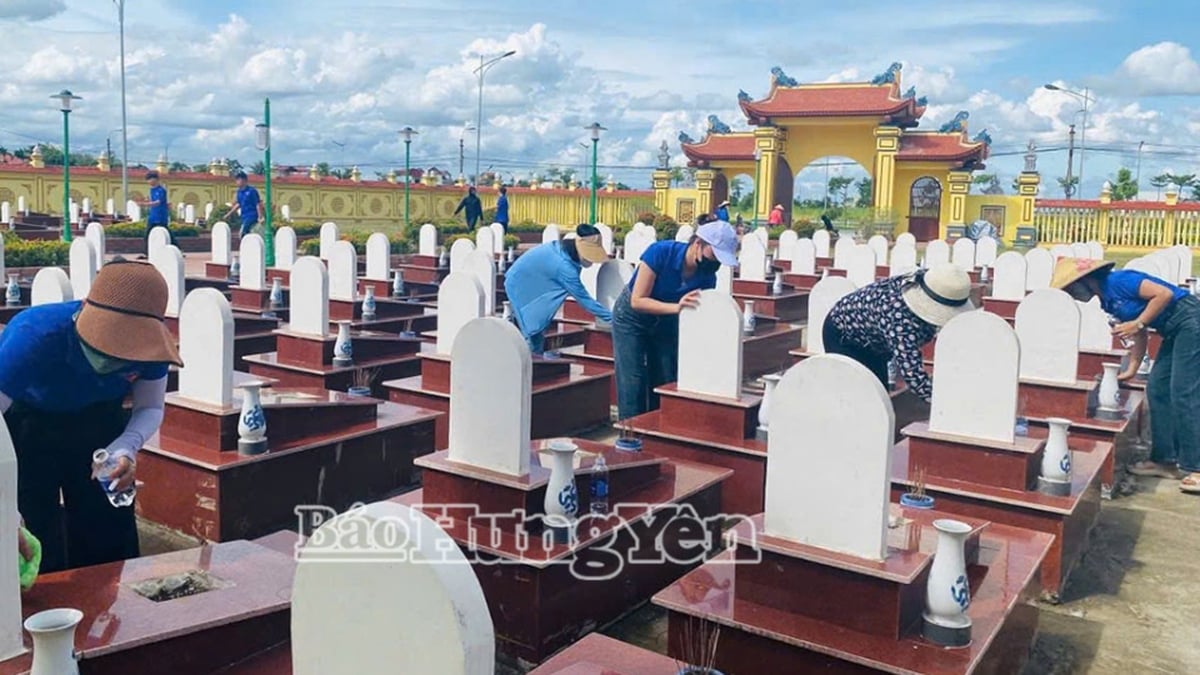




















![[Photo] Signing of cooperation between ministries, branches and localities of Vietnam and Senegal](https://vphoto.vietnam.vn/thumb/1200x675/vietnam/resource/IMAGE/2025/7/24/6147c654b0ae4f2793188e982e272651)











































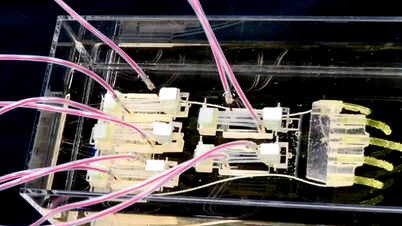
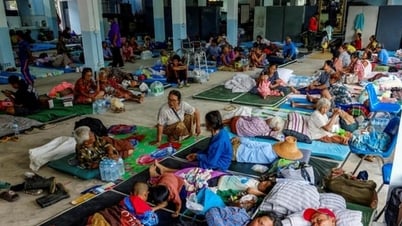
































Comment (0)